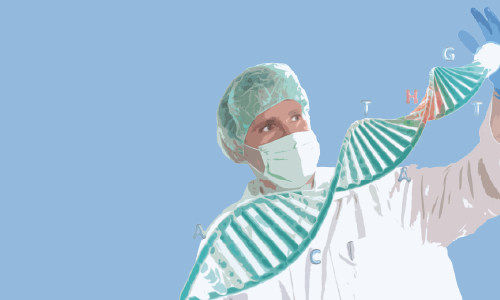The Difficult Task of Solving Contamination Puzzles A Brief Insight into the 2023 PDA Microbial Data Deviations Investigations Workshop
Detecting, investigating and managing microbial data deviations are vital for ensuring pharmaceutical products' integrity.
What is a Microbial Data Deviation?
Microbial data deviations refer to instances where data collected during microbial testing deviates from established norms or specifications. These deviations can have significant implications for the pharmaceutical industry, as they may impact product quality, patient safety and regulatory compliance.
However, investigations into these deviations are notoriously difficult to perform, even for the most experienced microbiologists. Most deviations are not discovered until several days or weeks after the event. In addition, microbiologists are often left with evidence that is largely circumstantial in nature. Direct evidence – the proverbial “smoking gun”– is exceedingly rare. Unless one is fortunate enough to have a video showing exactly how the deviation occurred, providing sound and scientifically justified evidence to support any identified root cause can be problematic. Yet, as an industry, we are required to investigate and determine the definitive root cause whenever possible. So, how exactly does a microbiologist find that elusive root cause?

In 2022, PDA released Technical Report No. 88: Microbial Data Deviations in the Pharmaceutical Industry. This technical report provides sound, practical guidance and best practices for conducting investigations into microbiological data deviations, addressing the investigation's laboratory and manufacturing portions. The 2023 PDA Microbial Data Deviation Investigations Workshop aims to expand and apply the information provided in the technical report by providing a comprehensive platform for industry professionals to discuss and share insights on various aspects related to microbial data deviations. The workshop will delve into the challenges of detecting and documenting microbiological data deviations and practical strategies for effective investigation, root cause analyses, and corrective and preventative actions (CAPA). Additionally, the event will focus on the importance of data integrity, regulatory considerations and best practices for overall microbial data deviation management. The workshop will be held on October 4-5, 2023, in Washington, D.C., immediately following the 2023 PDA Pharmaceutical Microbiology Conference.
More on What to Expect at the Workshop
The 2023 PDA Microbial Data Deviation Investigations Workshop will feature various presentations and interactive sessions conducted by subject matter experts, industry leaders and regulatory authorities. Some of the key topics to be covered include:
- Understanding the potential impact of microbial data deviations on process and product quality, and patient safety.
- Practical strategies and tips for effective root cause analyses for laboratory and manufacturing investigations.
- Determining and implementing appropriate and effective CAPA.
- Regulatory perspectives and expectations for microbial data deviation management.
- Case studies that provide real-world examples illustrating how to successfully navigate the twists and turns that arise during the investigation process.
Attendees will gain a valuable opportunity to learn and discuss the latest industry trends, regulatory requirements and best practices related to microbial data deviations. The workshop encourages networking and knowledge sharing among peers, allowing attendees to gain insights from diverse perspectives and experiences. Moreover, this event fosters collaboration and promotes the exchange of innovative strategies to enhance product quality and compliance. It is applicable to professionals in quality control, quality assurance, manufacturing, validation, facilities/maintenance and anyone else who wants to enrich their knowledge and experience concerning microbiological data deviation investigations.
This event aims to empower industry professionals to manage microbial data deviations more effectively by addressing critical challenges and sharing best practices. Through its focus on data integrity, regulatory perspectives and case studies, this workshop will equip attendees with powerful insights and practical solutions. As the industry strives for excellence in quality and patient safety, this event is crucial in driving continuous improvement and ensuring the delivery of safe and efficacious pharmaceutical products.



 Paula Peacos brings 30 years of practical industry experience as a microbiologist. Currently, she is a Senior Consultant and Microbiological Subject Matter Expert at ValSource, Inc. She has worked in contract manufacturing and testing organizations as well as small, mid-size and large pharmaceutical organizations.
Paula Peacos brings 30 years of practical industry experience as a microbiologist. Currently, she is a Senior Consultant and Microbiological Subject Matter Expert at ValSource, Inc. She has worked in contract manufacturing and testing organizations as well as small, mid-size and large pharmaceutical organizations.  Kim Sobien is a Microbiology Senior Consultant with ValSource, Inc. Her pharmaceutical industry career encompasses a breadth of quality, compliance and technical experience with injectable pharmaceutical products, including parenteral pharmaceutical contract manufacturing, pre-filled syringe generics, radiopharmaceuticals and biologics. Previously, she has served as MSAT Contamination Control Lead and a GSK Fellow at GSK, Principal Sterility Assurance Engineer for PETNET Solutions, Associate Director of Regulatory Compliance at Merck, Regulatory Compliance Lead at BD Rx, Inc., and Microbiology Laboratory Manager at Oso BioPharmaceuticals (now Curia).
Kim Sobien is a Microbiology Senior Consultant with ValSource, Inc. Her pharmaceutical industry career encompasses a breadth of quality, compliance and technical experience with injectable pharmaceutical products, including parenteral pharmaceutical contract manufacturing, pre-filled syringe generics, radiopharmaceuticals and biologics. Previously, she has served as MSAT Contamination Control Lead and a GSK Fellow at GSK, Principal Sterility Assurance Engineer for PETNET Solutions, Associate Director of Regulatory Compliance at Merck, Regulatory Compliance Lead at BD Rx, Inc., and Microbiology Laboratory Manager at Oso BioPharmaceuticals (now Curia).